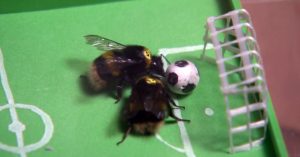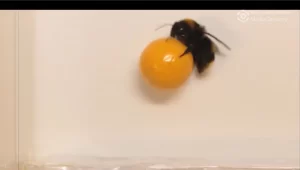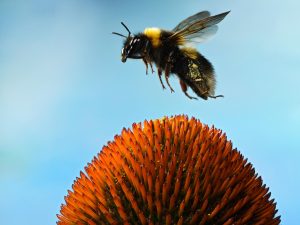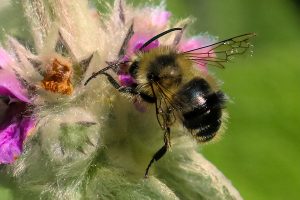A rather remarkable discovery has been made by researchers at Queen Mary University of London: insects like to play. At least, bumblebees certainly do.

Image credit: Discovery Canada
This could mean no less than that insects have more complex emotions than scientists previously thought. When put to the test, bees have proved over and over again that they’ve got a lot more to offer than making honey – for example, they can do complex maths or survive under volcano ash for months. Now, researchers say there’s proof they also like to play.
A study recently published in Animal Behavior suggests that bumblebees, when given the chance, like to fool around with toys. The researchers kept bumblebees in a container, connected by two tunnels to the container where the bees went for food. They could make their way to the feeding area either through an unobstructed path or opt for a detour into a chamber with wooden balls (toys). Many took the detour.
In fact, the bees regularly preferred the tunnel full of balls, where they “went out of their way to roll wooden balls repeatedly, despite no apparent incentive to do so.”
In an earlier experiment, scientists used the power of reward to teach bees how to play a game of soccer, and they succeeded!
But the new experiment was different in that, this time, the animals were given no incentive to interact with the balls and no reward for doing so, nor were they punished for avoiding the toys altogether. The bees may also have realized relatively quickly that there was no concrete benefit to be gained by rolling the balls away, with nothing to be found inside or underneath. So they played ball entirely of their own accord and for their own amusement. The researchers also observed that younger bees tend to spend more time in the playhouse than older bees do.
According to the team, this could mean that insects, too, can enter a positive emotional state, meaning they can feel some simple form of pleasure. Previously, scientists thought that only larger and more evolved animals, such as birds and mammals, which are more likely to exhibit playful behavior, were capable of such emotions.

.

.






